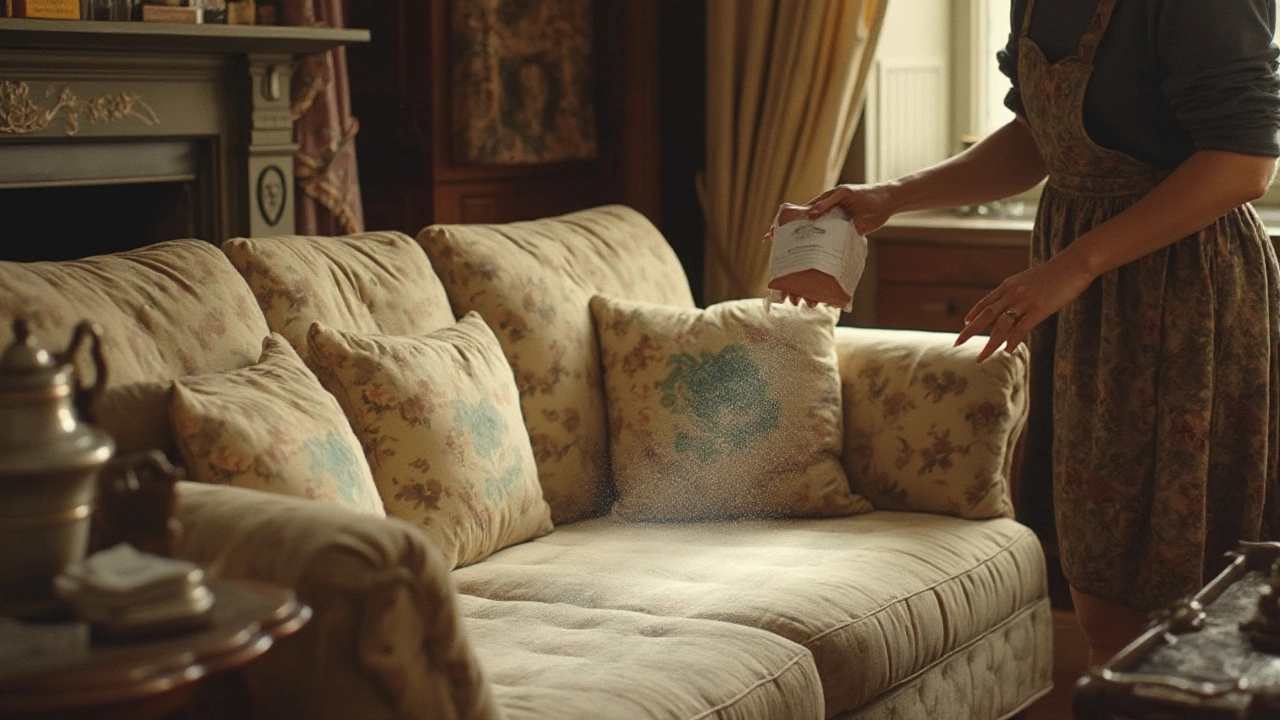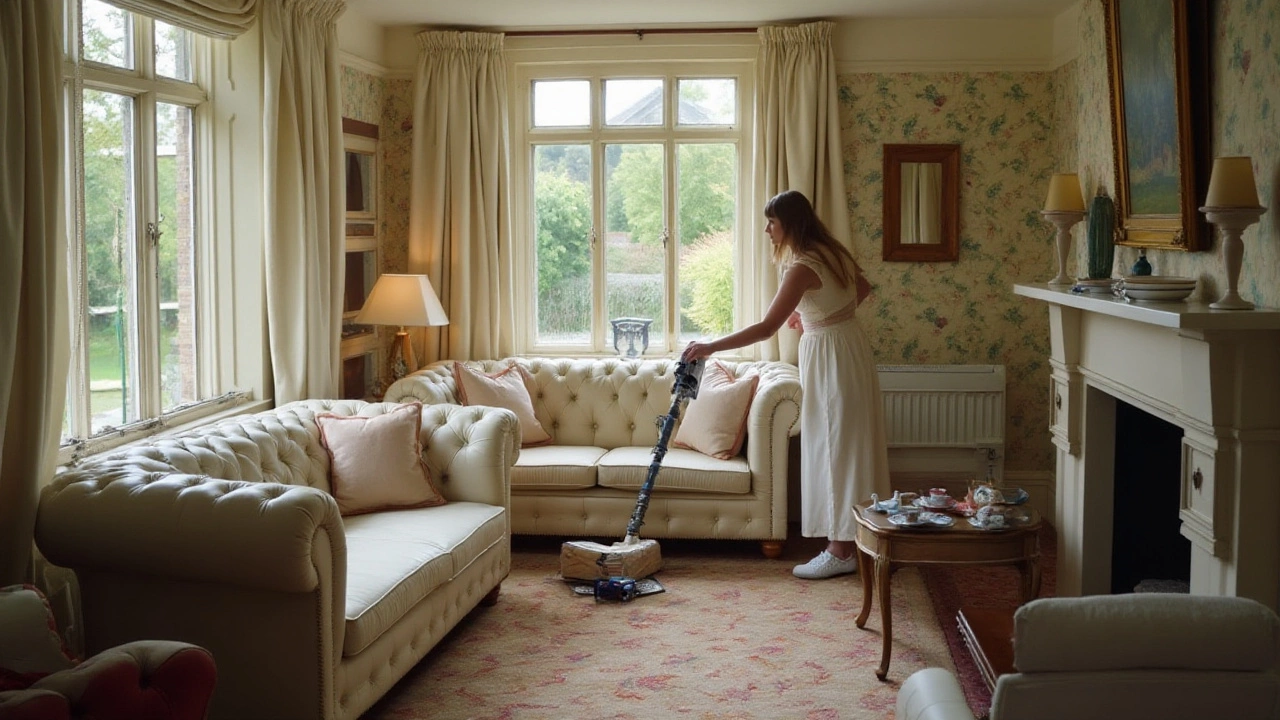Couch Cleaning: Quick Tips and When to Call the Pros
Got a couch that looks tired after a few months? You don’t have to live with stains or odors. A few simple steps can bring back that fresh‑feeling look, and knowing when to call a professional saves you time and money.
DIY Stain Removal
First, grab a clean microfiber cloth and a gentle solution. Mix one part white vinegar with two parts warm water – that’s a safe, cheap cleaner for most fabrics. Spot‑test a hidden corner to make sure the colour doesn’t bleed.
For fresh spills, blot – don’t rub – the area. Rubbing pushes the stain deeper into the fibres. Press the cloth gently until the liquid is absorbed, then repeat with the vinegar mix. If the stain is oily, sprinkle a little baking soda on it first. Let it sit for 10‑15 minutes; the soda will absorb the grease.
Older, set‑in stains need a bit more work. Mix a teaspoon of dish soap (Dawn works well) with warm water. Apply the foam with a soft brush, moving in small circles. Rinse with a damp cloth and let the couch air‑dry. Avoid over‑wetting – too much water can cause mould in the padding.
Odour problems usually come from spills that weren’t fully cleaned. Sprinkle baking soda over the entire cushion, let it sit overnight, then vacuum it off. The soda neutralises smells without harsh chemicals.
When to Call a Professional
Some jobs are just too tough for home remedies. If you notice a lingering foul smell after cleaning, it could be trapped in the foam. Professional upholstery cleaners use hot water extraction, which reaches deep into the padding and removes hidden bacteria.
Heavy‑duty stains like wine, coffee, or ink on delicate fabrics often need specialized solvents. A pro knows which product won’t damage the colour or texture. They also have equipment that dries the couch faster, preventing mould growth.If your couch is made of leather or a high‑gloss synthetic, DIY cleaners can leave streaks or strip the finish. Leather cleaning requires pH‑balanced solutions and conditioners that only a trained service will have.
Lastly, regular deep cleaning by a company like Dandy Fox Cleaning Services can extend the life of your furniture. Their team uses eco‑friendly products, so you get a clean couch without harsh chemicals. They also offer a quick‑dry service, so you’re not stuck waiting for hours.
Bottom line: keep a basic vinegar‑water mix and baking soda on hand for everyday messes. When stains become stubborn, or you want a thorough deep clean, book a professional. Your couch will thank you with years of comfort and a look that still feels brand new.

Best Methods for Cleaning Your Couch
Cleaning a couch can seem daunting, but it's easier with the right techniques and materials. From identifying the fabric type to using household items like vinegar and baking soda, there are many effective ways to keep your couch looking great. Always test a small area first to avoid damage. Regular maintenance makes a big difference in prolonging your couch's life while keeping it fresh and clean. Explore practical tips to tackle common stains and maintain your upholstery effortlessly.
Read More
Effective Techniques for Using Baking Soda on Couch Stains
Baking soda is a versatile and natural cleaning agent that can be effectively used to clean couch upholstery. This article delves into how long to leave baking soda on your couch for optimal results. It also provides tips and tricks to maximize its stain-removing power. Learn how to maintain your couch's freshness and cleanliness with everyday household items.
Read More
How Often Should You Clean Your Couch for a Cozy Home
Keeping your couch clean is vital for a cozy and inviting living space. Regular cleaning not only enhances the appearance but also prolongs the life of the upholstery. This article delves into how often you should clean your couch based on factors like usage, fabric type, and the presence of pets or allergies. Learn practical tips for maintaining your couch in tip-top shape all year round.
Read More